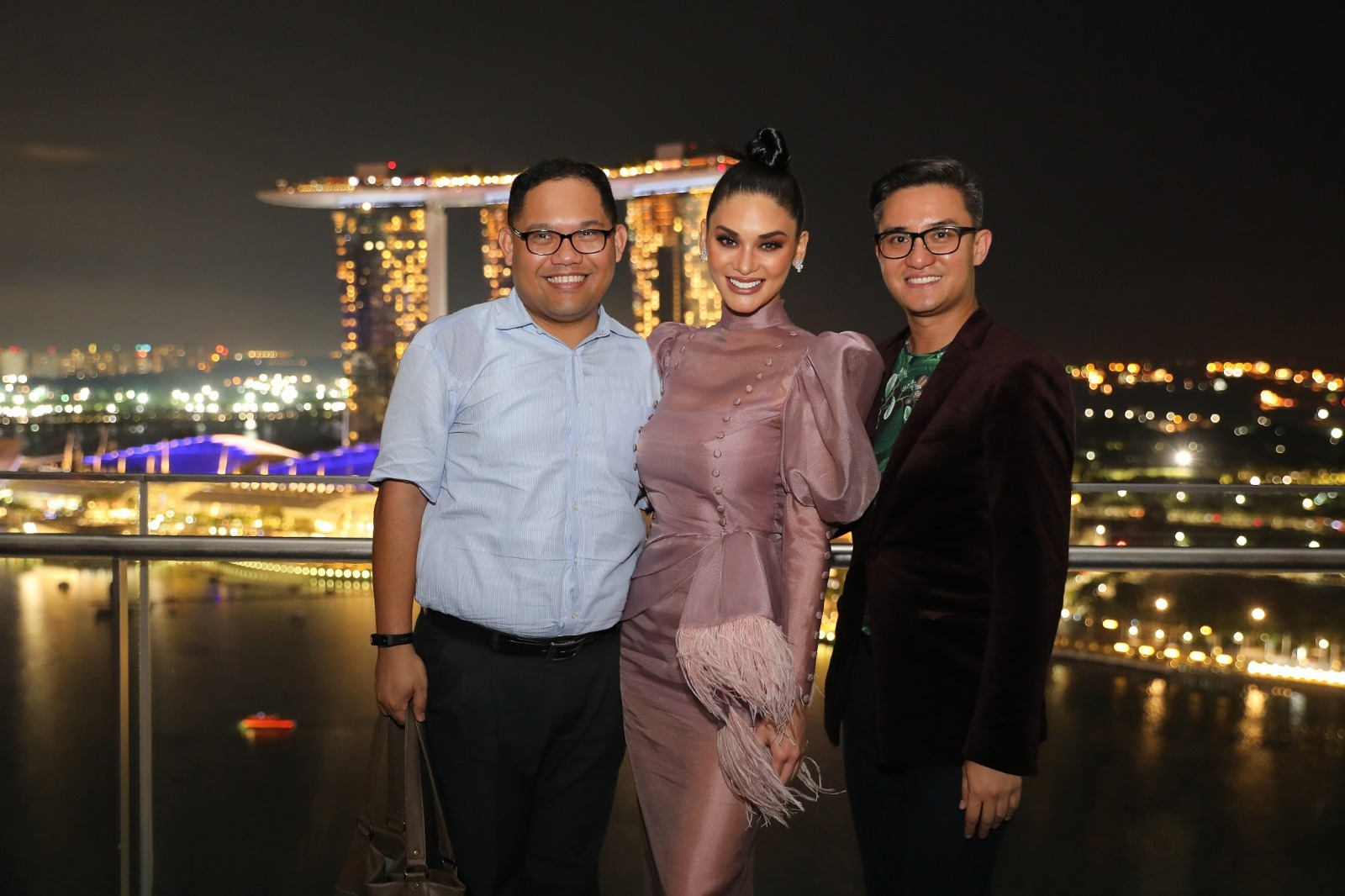As a prelude to my writing activities for this year as a PhD student, I have to set my mood to writing. Here's an attempt to start building my writing portfolio to beef up my PhD research project writing about one of my favourite topics - beauty pageants. I am a big pageant fan myself. And this essay hopes to start my critical engagement on what it means to be 'beautiful' and how can we build a supportive community that does not celebrate 'external' beauty alone.
More on my PhD journey later.
==============================
By now, more than 80+ candidates from all over the world have already congregated in New Orleans, Louisiana, USA for the 71st Miss Universe competition. This competition will select the winner for 2022 which was moved a month after the end of the previous calendar year.
For Filipinos, Miss Universe is regarded as an important national holiday. Members of the working class within the LGBTQIA+ community would file for Annual Leave to ensure they do not miss out the live telecast of the finals night. After months, even years of planning, hardwork and preparation to compete in the national competition and preparing for the global finale, this is the much awaited clincher. Fans like me, continue to remain excited in cheering and supporting our delegate and other competitive women from all over the world.
If the world has Football and the World Cup, Filipinos have MISS UNIVERSE! Miss Universe is the 'Olympics' of beauty.
Capili (2003) posited in the book, "Mabuhay to Beauty: Profiles of Beauties, Essays on Pageants" that Filipinos' national past times can be coined as the '3Bs' - Basketball, Boxing and Beauty Pageants. Indeed, beauty competitions are being held everywhere and almost every week, attracting candidates from all over the country. This popularity acknowledged the candidates' hope of not only clinching a title, but in making it a launching pad for their future careers, networking with the society's elite, and most recently, in pushing for their advocacies. The latter necessitates more discourse, in my opinion.
Despite this, I agree that our fascination for pageants like Miss Universe has brought forth certain impacts. Initially, when powerhouse countries like USA, Venezuela and other Latin American countries dominated the competition, Filipino queens attempted to fit into this 'mold'. Our 'Westernised' appreciation of beauty led to an increased popularity of surgeries enhancing one's look. It was then when the Philippines resurged in the pageant scene that Asian features began to receive attention. Now that Thailand, Indonesia, Vietnam have also stepped up their game, the 'Oriental' beauty is now being celebrated and recognised as well. On top of that, Miss Universe is now owned by a Thailand-based conglomerate. These indicators seems seems to transpire a new direction, as pageant fandom and 'commercialisation' has shifted to pageantry's current biggest market - Asia.
I also argue that we still need to redefine what it means to be a 'queen' in these trying, turbulent and very complex times. Gone were the days when beauty is a mere signifier of status and prestige. Presently, some beauty pageants like Miss Universe, Miss World, Miss Earth and Miss International have also invited women to present their advocacy such as anti-woman violence, education and environmental protection as part of keeping its social relevance. Can beauty competitions which primarily judge and select women based on looks also sustain the clamour to be socially relevant? How can beauty pageants and its organisers continue to become real advocates for women beyond the capitalist's notion and definition of beauty? Can we defy pageantry's present regard to physical beauty alone and make it as an inclusive platform in our search for 'beautifully confident' women which celebrates differences and diversity in colour, race, body shape and culture?
Finally, what can our institutions do to genuinely promote women's rights and acknowledge the multitude ways of presenting women and their 'empowement' agenda? I think pageants, just like any other platforms seek to find legitimate spaces for women to be represented and recognised. Quite recently, Miss Universe opened their competitition to transwomen and married women. Miss Universe Spain 2018, Angela Ponce, became the first transwoman contestant of the Miss Universe competition in its entire history. By 2023, Miss Universe will be opened to married contestants and mothers. Does these manifestations of being 'modern' and 'politically correct' really promotes genuine inclusivity among women?
Beauty pageant contestants' hardwork to win a crown indeed, merits our praise and attention. But most importantly, pageantry's sponsorship culture needs some reimagining. What can the community (queens, companies, fans, sponsors) do more to understand prevailing social inequalities and inequities to drive some collective action? Can pageantry become an effective platform to educate and inspire beyond its spectacle and glamour?
For at the end of the day, when our physical beauty declines, our body shape changes, our inner, most genuine beauty will still radiate by the way we define and live it. This is where we all find our own respective 'silver lining' (Gray, 2018).
For now, Happy Miss Universe season! Cheer prudently, and hopefully with respect to all the contestants from all over the world..."the universe rather" (Wurtzbach, 2015).
References:
Capili, Jose Wendell P. (2003). Mabuhay to Beauty!. Quezon City: Milflores Publishing.
Gray, Catriona. (2018). Miss Universe 2018. Bangkok, Thailand.
Wurtzbach, Pia (2015). Miss Universe 2015. Las Vegas, Nevada, USA.
(P.S. I (left) stood with Miss Universe 2015 Pia Wurtzbach and Dr. Gene Segarra Navera, an academic-cum-pageant trainer during the former's visit to Singapore for the Miss Universe Singapore 2019 competition.)

.jpg)
Comments